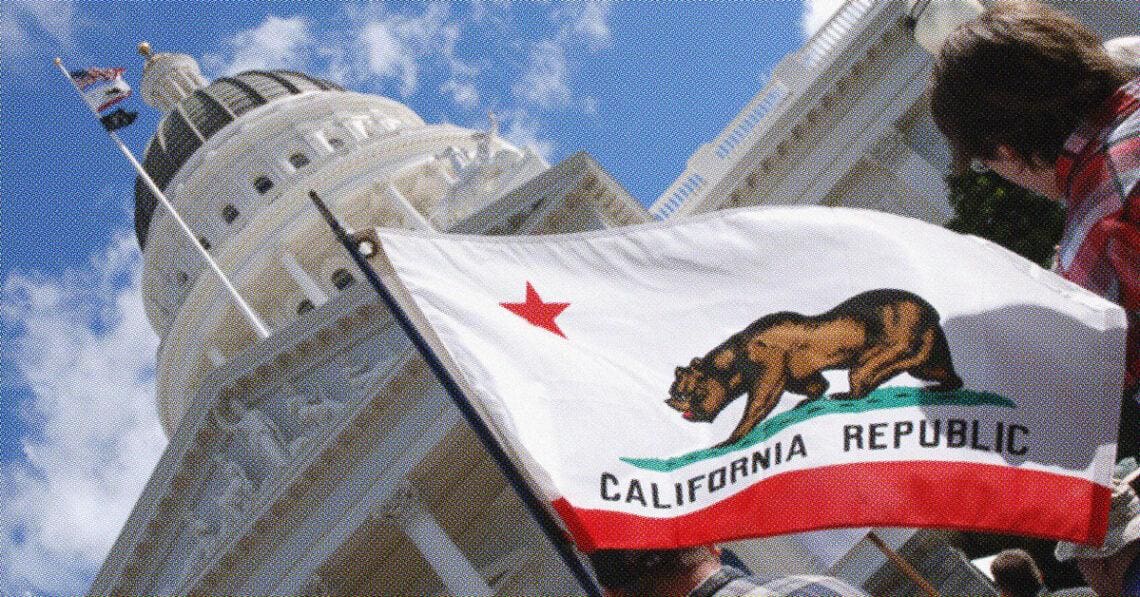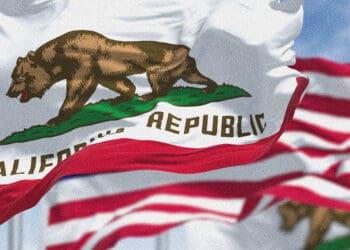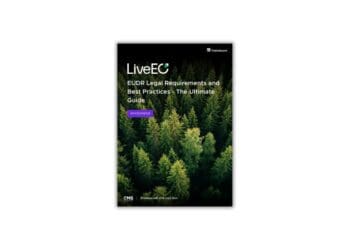Vaulting past the SEC, which continues to deliberate climate disclosure requirements for public companies, the state of California last year passed two pieces of legislation that impose unprecedented reporting requirements on companies doing business in the state, the world’s sixth-largest economy. A trio of experts from law firm Sidley Austin dig into the details.
Maureen F. Gorsen, Heather M. Palmer and Caleb J. Bowers co-authored this article.
In 2023, California enacted two landmark climate disclosure and financial reporting laws: the Climate Corporate Data Accountability Act (SB 253) and the Climate-Related Financial Risk Act (SB 261). Referred to collectively as the climate accountability package, these new California laws impose unprecedented reporting requirements on large U.S. public and private companies doing business in California, including disclosure of Scope 1 and Scope 2 greenhouse gas (GHG) emissions beginning in 2026 and Scope 3 GHG emissions in 2027 and submission of biennial climate-related financial risk reports to the California Air Resources Board (CARB) beginning in 2026.
California’s new laws are broader than the proposed rules issued by the SEC, expected to be finalized during the first part of 2024 in two important ways: They apply to both private and public companies, while the SEC rules apply only to public companies, and California’s disclosures will definitely include Scope 3, while it is still unclear whether the same will be true for the SEC rules.
California’s climate accountability package requires public and private U.S. companies doing business in California and generating over $1 billion in gross annual revenue to disclose their Scope 1, Scope 2 and Scope 3 GHG emissions to the state on an annual basis as well as to obtain third-party assurance of disclosures. Companies would also be required to evaluate their climate-related financial risk in accordance with the recommendations of the Task Force on Climate-Related Financial Disclosures (TCFD).
The state joins other jurisdictions in introducing disclosures regarding GHG emissions, notably the European Union (EU). There are differences in the two reporting schemes, but we expect much cross-exchange as the California implementing regulations are developed, and we may see California include EU climate and sustainability topics, such as biodiversity, circular economy, pollution and workers across the value chain.
Climate Corporate Data Accountability Act (SB 253)
Who is covered?
SB 253 applies to “reporting entities,” which are defined as partnerships, corporations, limited liability companies or other business entities formed under the laws of California or any other U.S. state or the District of Columbia or under an act of the U.S. Congress with total annual revenue exceeding $1 billion and doing business in California. As defined in existing law, “doing business” in California would include companies actively engaging in any transaction for the purpose of financial or pecuniary gain or profit within California, regardless of whether the company is domiciled in the state. A reporting entity’s revenue for the prior fiscal year will serve as the basis for determining whether the $1 billion annual revenue threshold has been met.
What is required?
A reporting entity will be required to disclose its Scope 1, Scope 2 and Scope 3 GHG emissions to California on an annual basis as well as to obtain third-party assurance of its disclosures. Scopes 1, 2 and 3 emissions are to be measured and reported in conformance with the Greenhouse Gas Protocol standards and guidance.
- Scope 1: All direct GHG emissions that stem from sources that a reporting entity owns or directly controls, regardless of location, including but not limited to fuel combustion activities.
- Scope 2: Indirect GHG emissions from consumed electricity, steam, heating or cooling purchased or acquired by a reporting entity, regardless of location.
- Scope 3: Indirect upstream and downstream GHG emissions, other than Scope 2 emissions, from sources that the reporting entity does not own or directly control and may include, but are not limited to, purchased goods and services, business travel, employee commutes and processing and use of sold products.
When will reporting start?
Reporting entities are required to publicly disclose their Scope 1 and Scope 2 GHG emissions beginning in 2026 and Scope 3 GHG emissions in 2027. Unlike the SEC’s proposed rules on climate-related disclosures, there is no phase-in of the requirements based on the size of the reporting entity. Starting in 2027, Scope 3 emissions must be disclosed no later than 180 days after the reporting entity discloses its Scope 1 and Scope 2 emissions for the prior fiscal year.
Are You Giving Sufficient Attention to Sustainability Matters?
Corporate leaders in North America are less engaged with ESG than their global counterparts, as the term itself continues to fall out of favor. But does that mean climate change and sustainability don’t matter. Protiviti’s Jim DeLoach has 10 questions for boards and top execs.
Read moreDetailsClimate-Related Financial Risk Act (SB 261)
Who is covered?
SB 261 applies to “covered entities,” defined as partnerships, corporations, limited liability companies or other business entities formed under the laws of California or any other U.S. state or the District of Columbia or under an act of the U.S. Congress with total annual revenue exceeding $500 million and doing business in California. As with SB 253, a covered entity’s revenue for the prior fiscal year will serve as the basis for determining whether the $500 million threshold has been met.
What is required?
SB 261 requires covered entities to prepare and submit climate-related financial risk reports to CARB on a biennial basis (every other year). The report must disclose (i) the covered entity’s climate-related financial risks in accordance with the recommendations of the TCFD and (ii) measures adopted by the covered entity to reduce and adapt to climate-related financial risks.
When will reporting start?
The legislation currently requires that all covered entities prepare a climate-related financial risk report and make it available to the public on its website by no later than Jan. 1, 2026, with CARB adopting implementation regulations by Jan. 1, 2025. As with SB 253, there is no phase-in of the requirements based on the size of the covered entity. It is expected that in the early months of 2024, the California legislature will propose cleanup legislation to extend these deadlines.
Regardless of when California reporting commences, any reporting a company does under any other standard must be done with the eye toward compliance in California as California public and private enforcers may enforce against any statement made in any forum if the company is also subject to the state’sreporting rules.
Next steps
The following practical guidance is provided for consideration by public and private companies:
- Evaluate how the new laws affect your future disclosures. Public companies should begin assessing the gaps between climate-related information they currently disclose, inside and outside of SEC filings, and what will be required under SB 253 and SB 261. Private companies should assess the gaps between climate-related disclosures in voluntary reports, such as ESG or sustainability reports, and California’s new requirements. These gaps could be significant for many companies. In addition, many companies that have to date been partially compliant with TCFD in climate-related disclosures may need to rework their approach or disclose more information to satisfy the disclosure requirements that are derived from the TCFD reporting framework.
- Evaluate how the new laws affect your operations. While the California laws pertain primarily to disclosure and preparation of a climate-related financial risks report, they may affect operations, as companies will be compelled to take actions, to the extent they are not doing so already, to have monitoring, accounting, planning and governance practices in place so that required disclosures can be made and risk reports prepared. Companies should also consider whether sustainability requirements in other jurisdictions, notably the EU, will apply and, if so, the requirements they impose.
- Identify the obligations that will be challenging for your enterprise to meet. Many of the disclosure requirements will create new challenges for public and private companies that have not made these disclosures in the past, including the new assurance requirements applicable to disclosures of Scope 1, Scope 2 and Scope 3 emissions.
- Evaluate whether your enterprise is subject to other climate disclosure obligations. Besides the California laws, and the proposed SEC climate-related disclosure rules, the EU and UK also have started to adopt climate and financial risk disclosures obligations. In the EU, corporate responsibility and corporate due diligence directives will require non-EU companies, subject to turnover and employee thresholds, to report on GHG emissions. Enterprises should begin assessing whether they are, or will be, in scope of multiple disclosure obligations and ensure data integrity and alignment among various disclosures.
- Line up assurance firms and advisers as needed. As the new laws require assurance of climate-related information, companies may need to evaluate the capabilities of their current service providers to supply these services and, if necessary, line up providers to fill gaps and needs. Changes in operations and disclosures may necessitate the engagement of new expertise, both inside and outside of the company, related to management, operations and legal ramifications related to the new disclosures and any new operational initiatives designed to support them. Companies may additionally wish to assess the expected costs of increased engagement with outside advisers.














